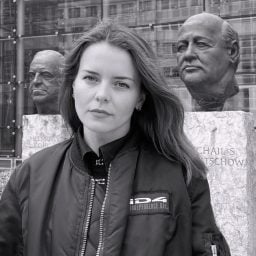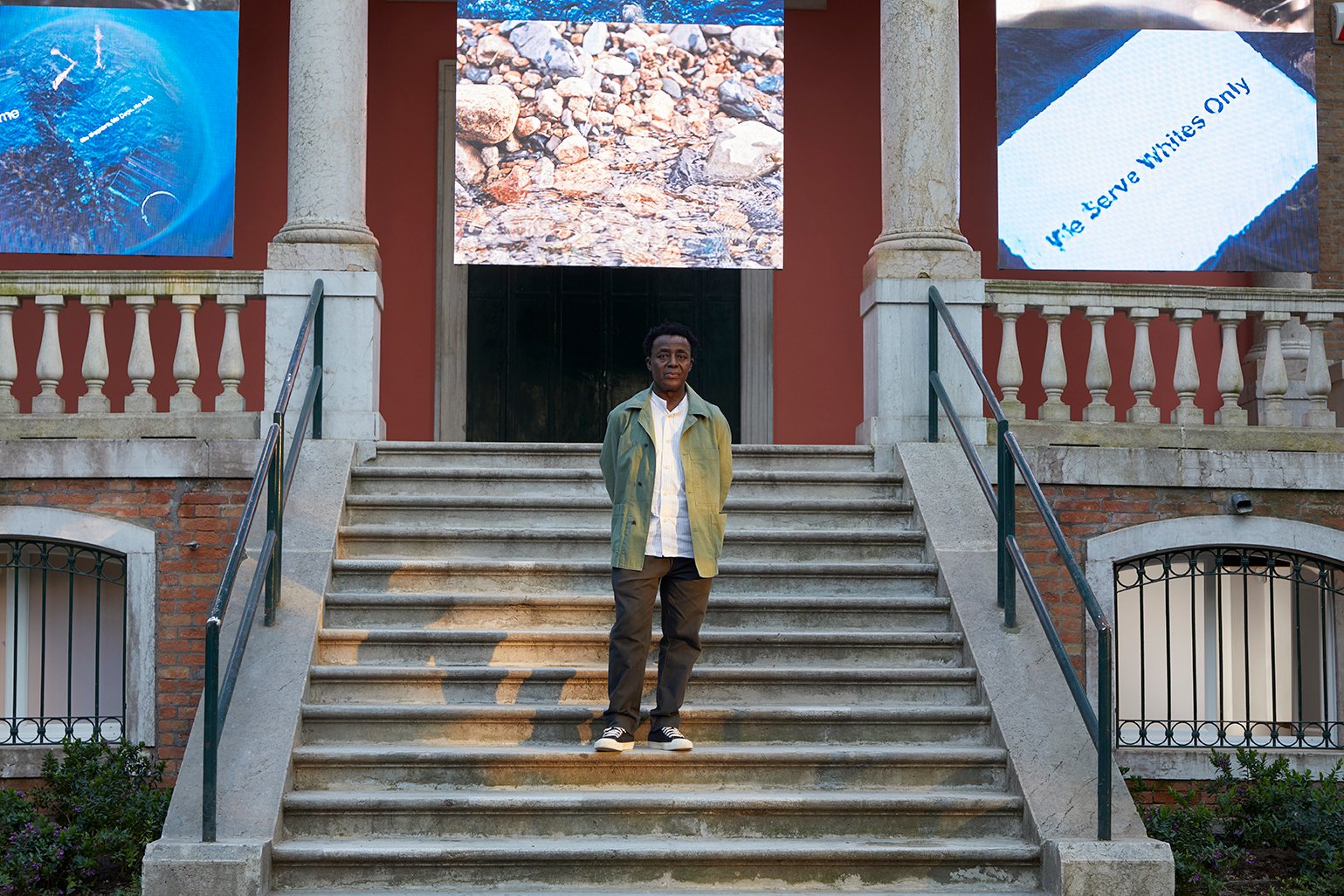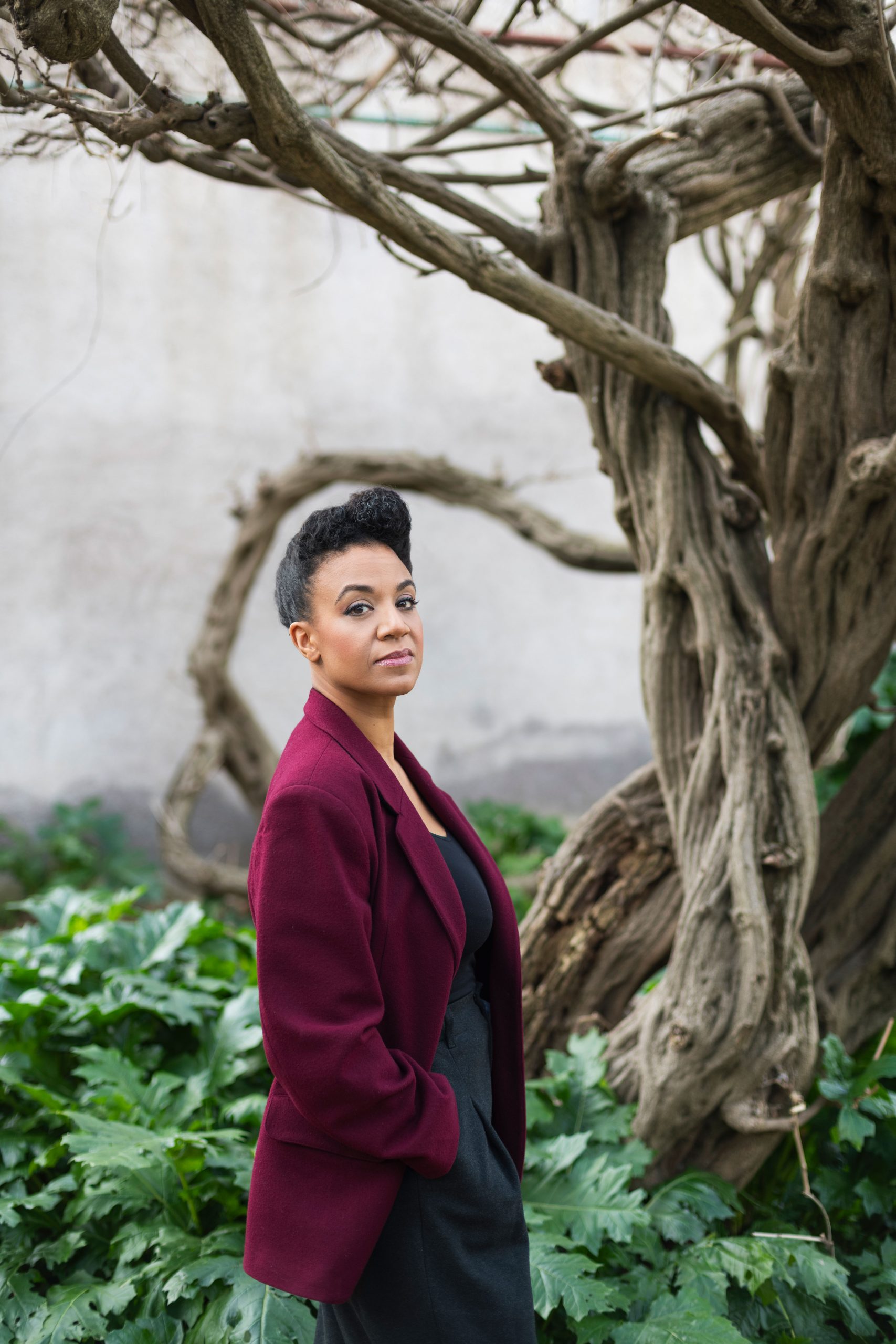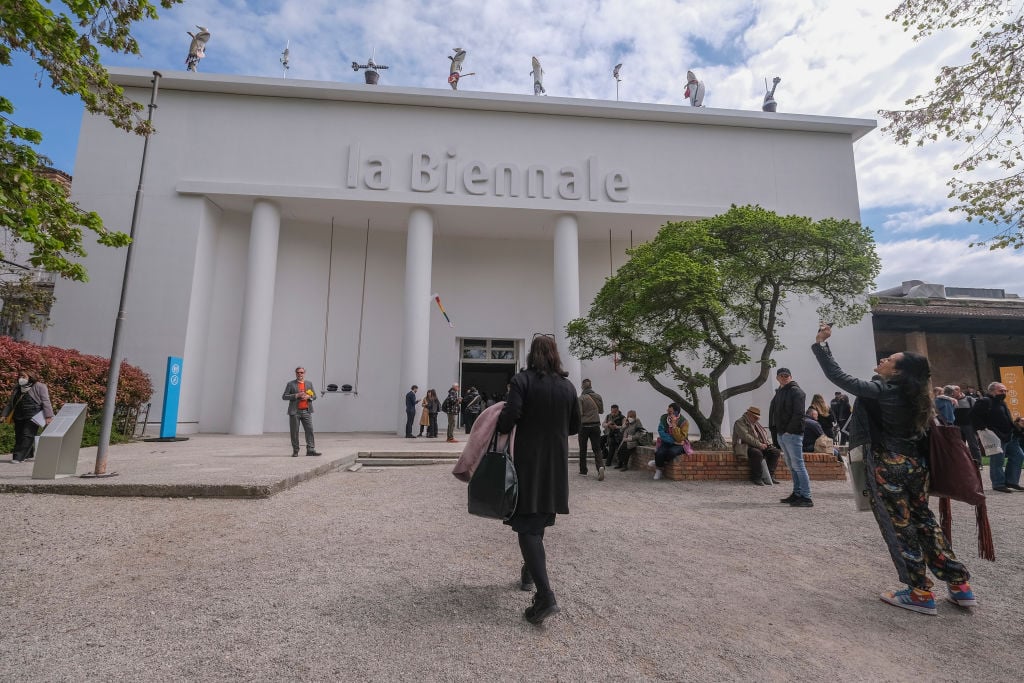Art & Exhibitions
The Head of Documenta Has Resigned Amid an Ongoing Antisemitism Scandal as the Mega-Exhibition Seeks to Regain Lost ‘Trust’
Sabine Schormann, director general of Documenta, has resigned from her post on short notice.
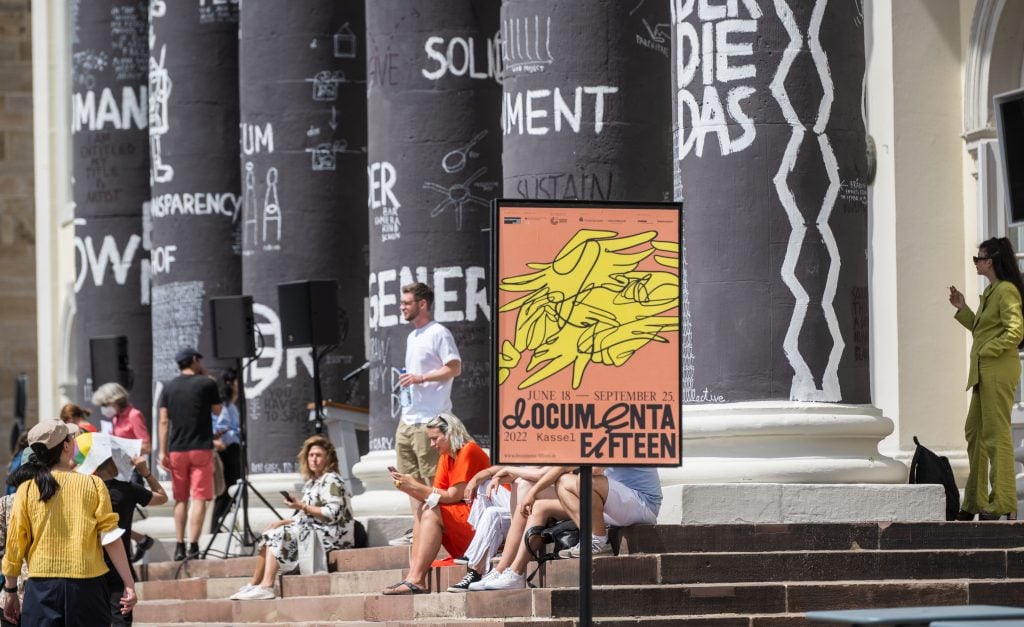
Sabine Schormann, director general of Documenta, has resigned from her post. The quinquennial exhibition’s nonprofit parent company, Documenta gGmbh, announced the decision on Saturday.
According to the statement, the Documenta board and Schormann reached a mutual agreement on “short notice” after a meeting on Friday evening. The news comes after months of allegations of antisemitism came to a boiling point two days after the opening on June 18, when viewers became aware of anti-Semitic imagery in a prominent artwork by Indonesian collective Taring Padi.
The announcement on the weekend came on the heels of a statement Schormann issued on Tuesday, July 12, that sought to clarify how Documenta and the curators had handled an unfolding controversy that began in January when members of the artistic team and some artists were accused of anti-Semitism.
“A lot of trust has unfortunately been lost,” the board said in the statement confirming Schormann’s departure. A search is underway for an interim director for the exhibition, which is just 30 days into its 100-day run.
The supervisory board also recommended appointing an expert advisory board consisting of scholars of contemporary anti-Semitism in the German and global contexts, as well as on postcolonialism. The advisory board should be “responsible for the initial stocktaking of the processes, structures, and receptions” surrounding the exhibition. According to the statement, an investigation should include indications of possible anti-Semitic imagery and the promotion of “Israel-related anti-Semitism… with due regard for the fundamental right to artistic freedom.”
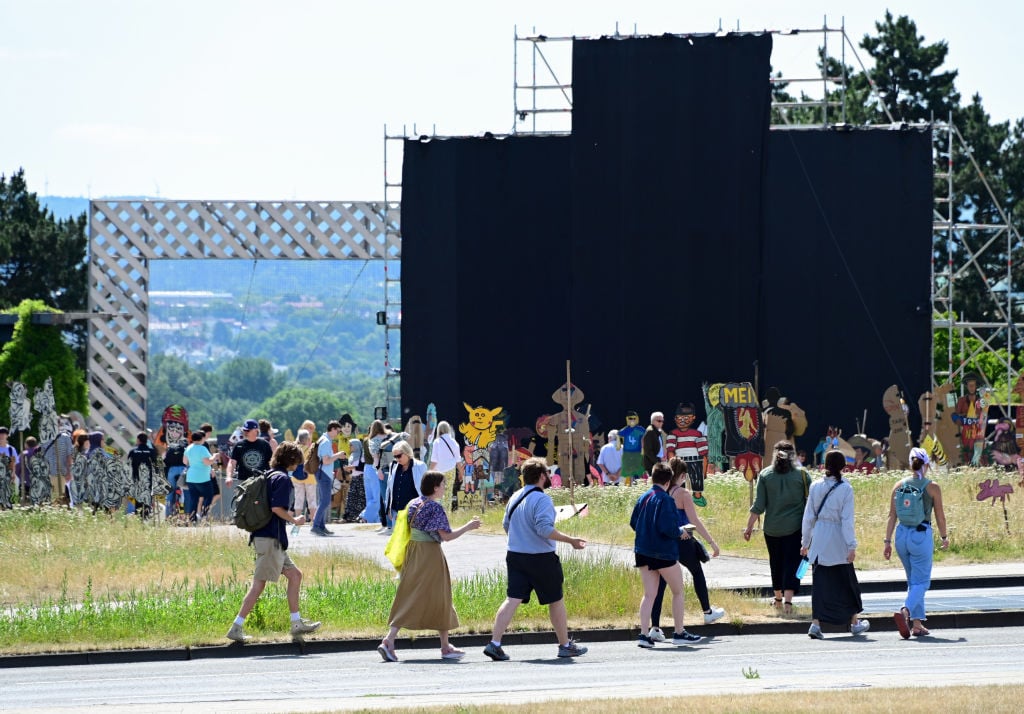
Art lovers look at the large covered painting People’s Justice (2002) by the Indonesian collective Taring Padi, covered with black cloth, on Friedrichsplatz. Photo: Uwe Zucchi/dpa.
Documenta 15, which was organized around the Indonesian word lumbung, which means a communal rice barn, focused on collective practices. With more than 1,500 participating artists, the show itself received generally positive reviews, including from Artnet News’s Ben Davis, who wrote that “the particular network-of-networks that Ruangrupa has pulled in genuinely feels like it knits together artistic scenes that are vital and under-known.”
Despite the achievements, since January, the 15th edition of Documenta, which takes place every five years in Kassel, has been embroiled in controversy over allegations of anti-Semitism since January when an anonymous blog post on the Alliance Against Antisemitism Kassel website accused members of the artistic team and some participating artists of supporting the pro-Palestinian Boycott, Divest, and Sanctions movement. Ruangrupa said the allegations were “bad-faith attempts” to delegitimize them.
A talk set to take place in April that would address antisemitism and anti-Muslim racism was canceled after the Central Council for Jews in Germany accused the talk’s organizers of bias.
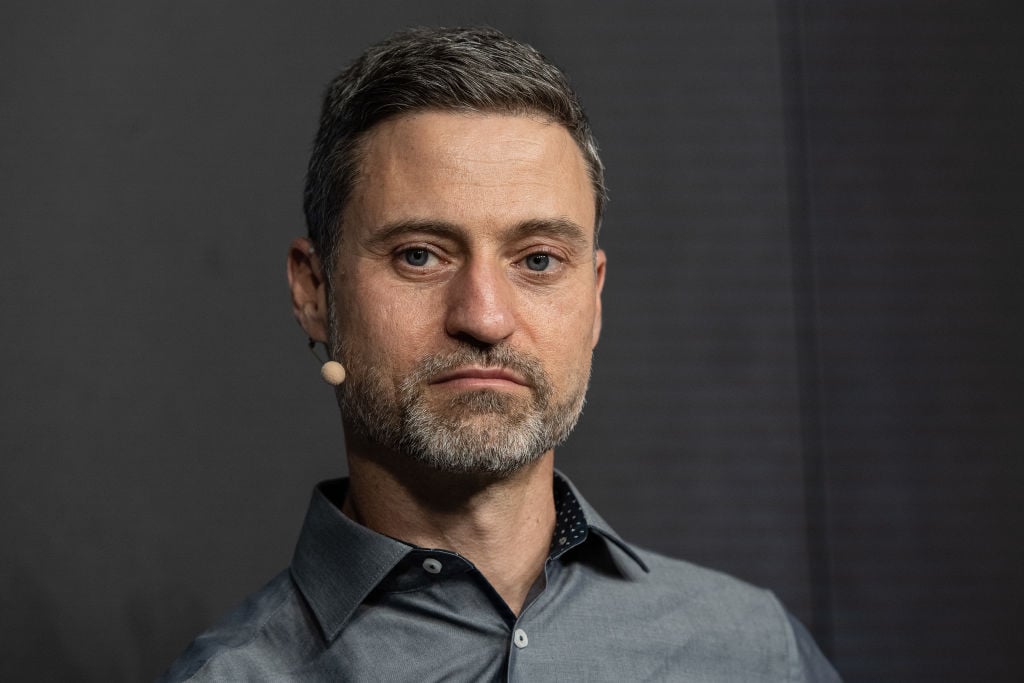
Meron Mendel, director of the Anne Frank Education Center, speaks on the topic of “Anti-Semitism in Art” at a panel organized by the Anne Frank Education Center and the supporting organization documenta gGmbH. Photo: Swen Pförtner/dpa via Getty Images.
Then, in June, just days after the official opening, it emerged that two antisemitic characters were in an artwork in the show. In Taring Padi’s publicly installed work, one could see a caricature of a Jewish orthodox man, with sidelocks and bloody fangs, donning a hat emblazoned with the Nazi SS symbol. Alongside that character, there is a depiction of an Israeli Mossad soldier as a pig. The work was immediately covered up and then removed. Both Taring Padi and the curators of Ruangrupa apologized. The large artwork dates to 2002 and was made to criticize the Suharto regime. It contains hundreds of characters, including demons and animals, as well as KGB and Australian intelligence officers.
The controversy did not quell after the removal of the work, called People’s Justice. An emergency panel was brought together on June 29 to discuss antisemitism in art. Less than two weeks later, artist Hito Steyerl, who was showing in the exhibition, pulled out of the show claiming that there was a “refusal to facilitate a sustained and structurally anchored inclusive debate around the exhibition, as well as the virtual refusal to accept mediation.” That same day Meron Mendel, the head of the Anne Frank Educational Institute in Frankfurt who had been brought on as an advisor to the exhibition in the wake of the scandal in June around Taring Padi’s work, also resigned.
Schormann had just a week ago rebuked statements made by Mendel, who told German media that Documenta was not active enough when it came to redressing in the wake of the revelations about People’s Justice. She said that the artists feared external panels would lead to censorship and that participants “saw themselves under general suspicion” and threatened in part because of their origin, skin color, religion or sexual orientation.
In the wake of Schormann’s statement, a spokesperson for Germany’s Culture Minister responded that the narrative given by the director general was “not accurate” and Roth “was very surprised and alienated” by it. In an interview after Schormann’s resignation announcement, Roth commented that it “right and necessary” and that “reappraisal” of the exhibition and consequences can now take place.
Follow Artnet News on Facebook:
Want to stay ahead of the art world? Subscribe to our newsletter to get the breaking news, eye-opening interviews, and incisive critical takes that drive the conversation forward.
